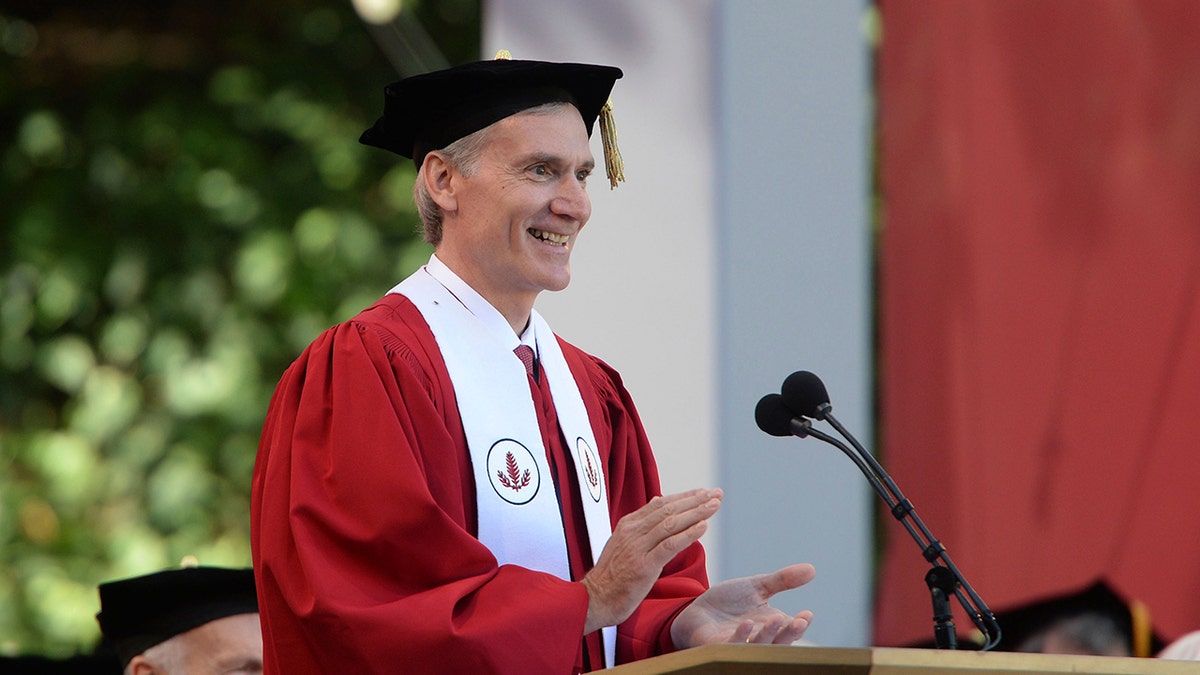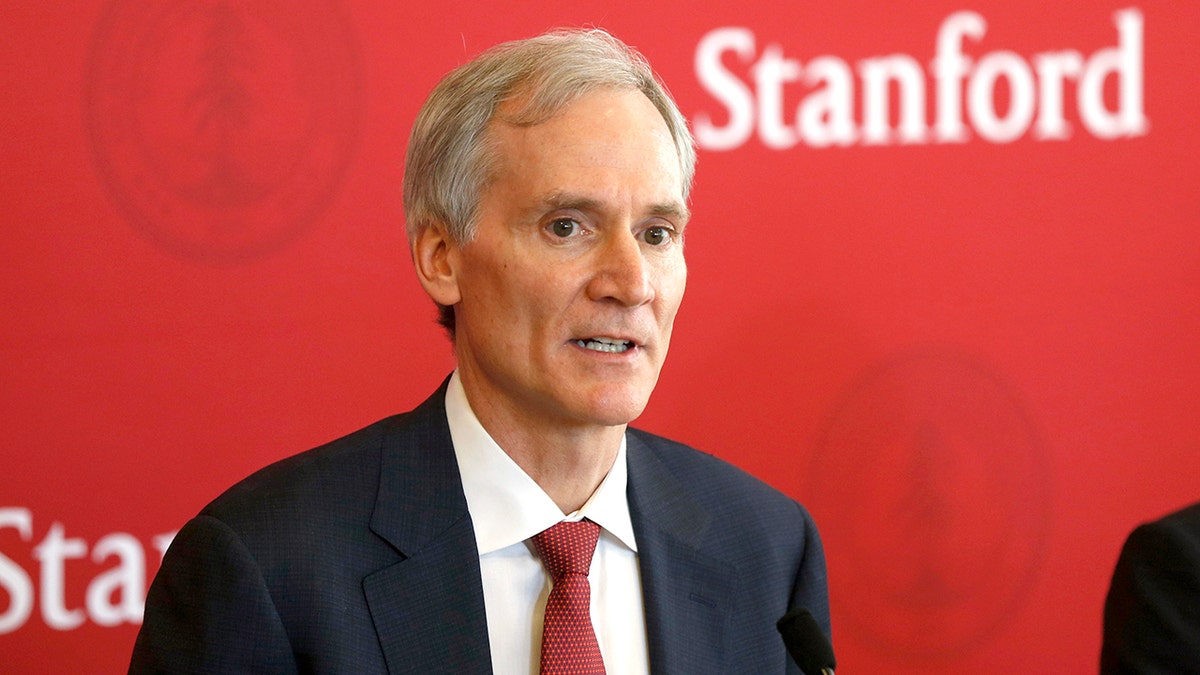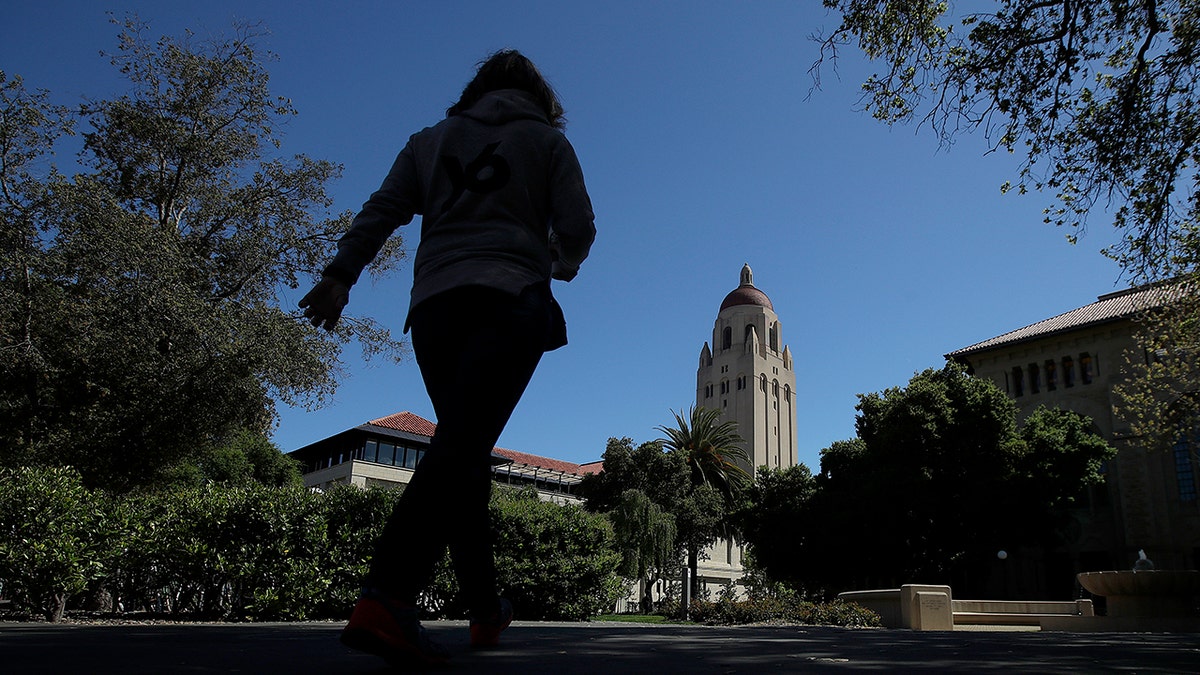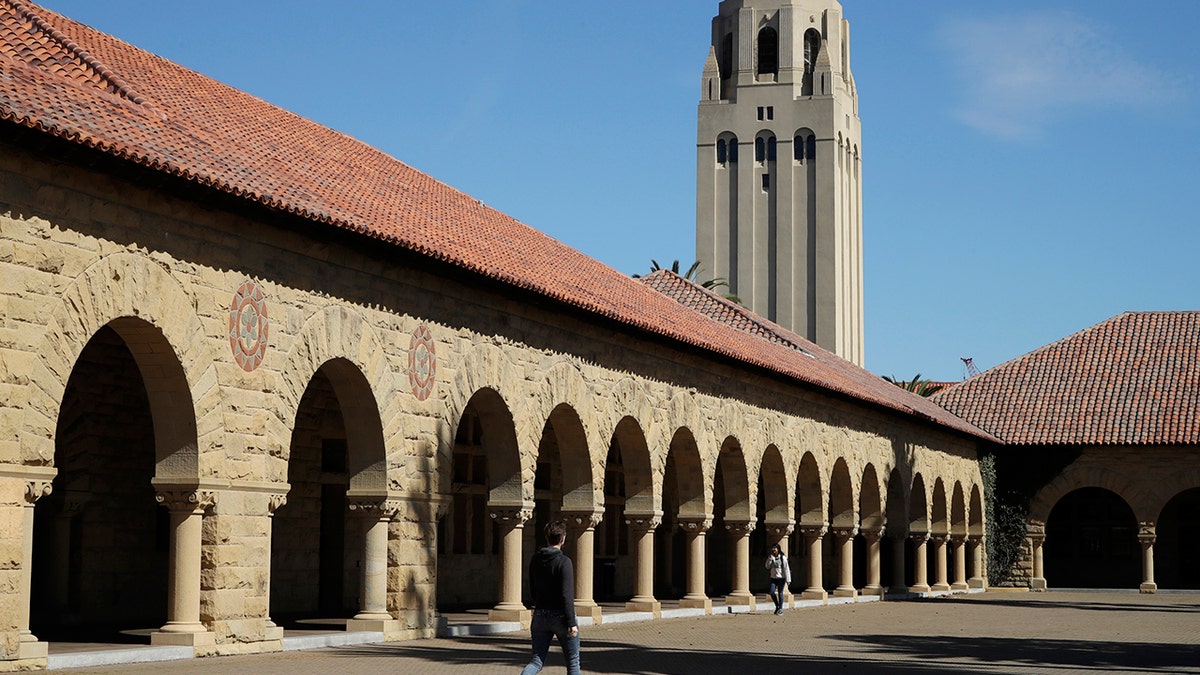Moms talk importance of education for the 2024 presidential election
Republican voters and mothers Samantha Wilhelm and Miranda Eslinger say the GOP candidate with the best education policy will secure their vote on ‘The Story with Martha MacCallum.’
The president of Stanford University announced Wednesday that he would be resigning after an independent review found "serious flaws" in five scientific papers in which he was the principal author.
In a statement to students and staff, Marc Tessier-Lavigne said he would step down effective Aug. 31 despite defending himself by saying he "never submitted a scientific paper without firmly believing that the data were correct and accurately presented." The review cleared him of research misconduct but found errors by team members.
Tessier-Lavigne, a neuroscientist who has been president for nearly seven years, admitted he should have been more diligent in seeking corrections and tightening controls at laboratories in the letter.
The resignation follows a review in December by the board of trustees amid allegations Tessier-Lavigne engaged in fraud and other unethical conduct related to research and papers that were published in 1999 and 2001 before he became Stanford president.

Marc Tessier-Lavigne makes his first address as president as he is inaugurated as the 11th president of Stanford University in Stanford, California, on Oct. 21, 2016. (Dan Honda/Bay Area News Group via AP)
The independent panel found multiple instances of manipulated data in the 12 papers they investigated but concluded the resigning Stanford University president was not responsible for the misconduct. They determined, however, the principal author "has serious flaws in the presentation of research data," and at least four of them contained data manipulated by others.
The panel cleared Tessier-Lavigne of the most serious allegations that fraud was found in a 2009 paper published in Nature. There was no fraud discovered, the panel ruled. The paper detailed a model of neurodegeneration, which could impact Alzheimer’s disease research and therapy.
However, the panel also concluded the paper had multiple problems, including a lack of rigor and that the presentation of data contained "various errors and shortcomings." The panel did not find evidence that Tessier-Lavigne was aware of the impropriety.
Dr. Matthew Schrag, an assistant professor of neurology at Vanderbilt University, who helped prompt the independent review, said in a statement to Fox News Digital that he appreciated its findings.
"I appreciate the rigor and transparency of the Special Committee’s report," Schrag said, speaking on his own and independent of his work at the Vanderbilt University Medical Center. "The manipulated data in these high-profile studies constitutes a serious lapse in research integrity, which is simply not acceptable. There have been numerous concerns raised about these papers over more than a decade; the decision to retract them and correct the scientific record is long overdue. Scientists, journals and institutions must not turn a blind eye to scientific misconduct, but take an active stand for research integrity."

Marc Tessier-Lavigne, the president of Stanford University said Wednesday, July 19, 2023, he would resign. (Patrick Tehan/Bay Area News Group via AP)
In the letter to the student body and faculty members, Tessier-Lavigne said he was aware of issues with four of the five papers but admitted taking "insufficient" steps to rectify the issues.
He also said he will retract three of the papers and correct two.
STANFORD'S ‘INDEX OF FORBIDDEN WORDS’ EVISCERATED ON TWITTER: ‘INTELLECTUAL MORONS’
PubPeer, a website where members of the scientific community can discuss research papers, first aired the allegations of misconduct. The Stanford Daily, the university's student-run newspaper, then published several stories about the integrity of those papers.
Theo Baker, an investigations editor and then-college freshman, told The Associated Press Wednesday that the retractions and corrections would not have otherwise occurred.
"The fact that we’re able to contribute to the scientific record being corrected for five widely cited papers is important," Baker said.

Hoover Tower is shown at rear on the campus of Stanford University in Stanford, California, on April 9, 2019. (AP Photo/Jeff Chiu)
Holden Thorp, editor-in-chief of the Science Family of Journals, said several people are involved in a laboratory and publishing research, but responsibility should fall on those in charge.
"The truth is that researchers run laboratories filled with people, and everything that happens in that laboratory is a product of many individuals there."
Tessier-Lavigne said he is stepping down because he expects continued debate about his ability to lead the university.
He has chosen to remain on the faculty as a biology professor and will continue his research into brain development and neurodegeneration.

People walk on the Stanford University campus beneath Hoover Tower in Stanford, California, on March 14, 2019. (AP Photo/Ben Margot)
CLICK HERE TO GET THE FOX NEWS APP
Richard Saller, a classics professor, has been named interim president starting Sept. 1, said board chair Jerry Yang.
In his own statement, Yang described Tessier-Lavigne as key to creating the university’s first new school in 70 years, the Stanford Doerr School of Sustainability, and the university’s growth.
The Associated Press contributed to this report.






















